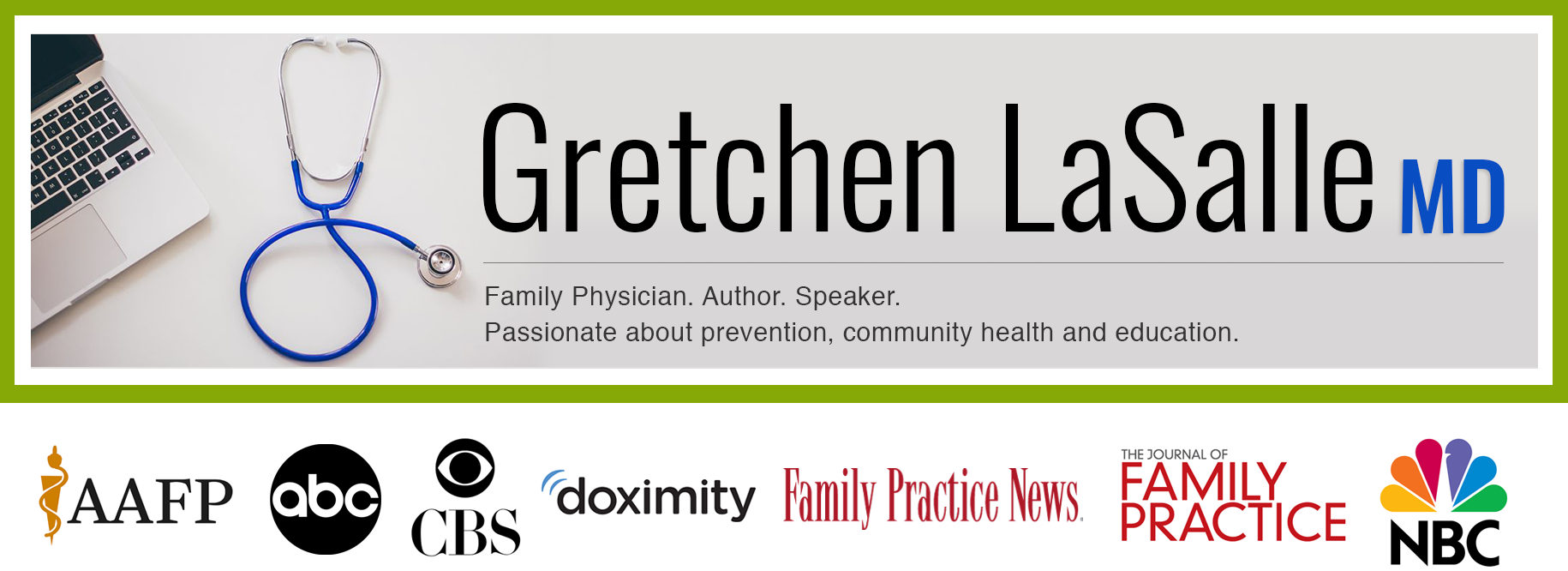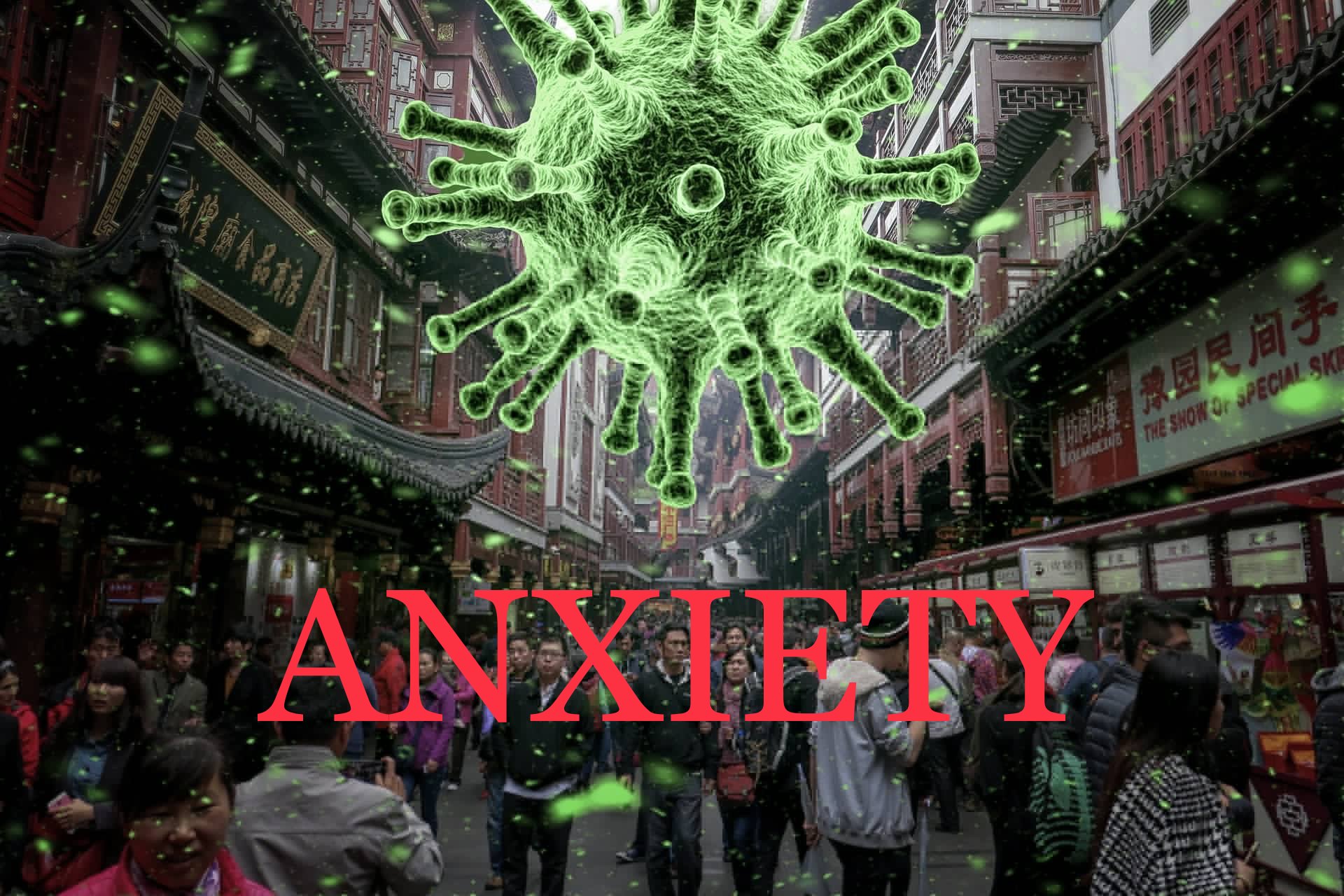Dear Everyone,
As I sit here with a dull ache in my head, rubbing out the knot in my neck, trying to stop my heart from beating like I’ve had three cups of coffee (I’m a one cup girl, max), it occurs to me that I might just be stressed. The last few weeks, I have been following the course of the novel Coronavirus outbreak very closely, maybe too closely for my own good. But I feel I owe it to my patients and family, and all the people who are texting and messaging and calling with their concerns, to be as knowledgeable as I can be about this threat. I want to be able to share up to date information with them. Because, even though knowing the frightening details of this illness is stressful, it is much better than not knowing and feeling helpless. In knowing our enemy, we can hope to fight against it (Someone important from history said that. It wasn’t me).
In my COVID19-research induced anxiety, I have become a germaphobe and a news junky. I am overly vigilant about hand sanitizing. I think I probably sanitize 120+ times per day (20 patients per day, at least 4 times per patient – before entering the room, before touching the patient, after touching the patient, before leaving the room, and a few more times for good measure), and that’s just in clinic. I am checking the local Department of Health website numerous times per day to see if we have yet gotten our first case of COVID19 here in town. Any day now. I am reading the news, multiple times a day, to see where the virus is spreading and how it is impacting our daily lives.
I am trying to stay current on the latest information coming from the World Health Organization (WHO) and the Centers for Disease Control and Prevention (CDC). I am spending my free moments listening to podcasts with thought leaders like Dr. Anthony Fauci, director of the National Institute of Allergy and Infectious Diseases (NIAID), who, thankfully, has the most calming presence. I am checking in regularly with my doctor friends and acquaintances around the country, through group chats and Facebook groups dedicated to sharing the latest information about what those on the front lines are seeing.
We are constantly in discussion about how COVID19 cases present and what signs or symptoms might allow us earlier detection; what medicines are being used to try and treat the symptoms, learning lessons from the countries that went before us; the struggles medical providers are having getting tests for patients who likely have the illness but don’t meet criteria for testing due to a shortage of testing kits; the rationing of personal protective equipment like masks and face shields, and more. And what I am seeing and hearing from others in medicine, in this country and around the world, has my anxiety levels riding high.
Every thing has become a fomite (something that caries an infection on its surface). Every person has become a vector (a living being that transmits infection to others). I am now hyper aware when others around me aren’t following the recommended rules of hand washing or sanitizing – clerks at the grocery store, people at the gym. It takes everything I have not to call people out. It’s a fine line to walk, maintaining a calming presence for self and others while trying to encourage a realistic assessment of the risk of our current situation. I apologize if my posts and tweets of late seem a little frantic. But that is because the situation is frantic. And I am worried.
I met someone today who said, cavalierly, “You can’t believe everything you read on social media”, as I was slathering my hands in sanitizer at the grocery store. Well, that’s true. But his suggestion was that the seriousness of the Coronavirus was being blown out of proportion. In situations like this, when a PANDEMIC is bearing down upon the world’s people, social media is NOT where you should be getting your information. Please. We should be looking to the organizations and people whose duty it is to protect our personal and public health – our doctors and nurses, our public health departments, the CDC and the WHO.
Trust me when I say that we need to take this situation extremely seriously. We need only to look to other countries, like China and Italy, to know that our healthcare system, particularly our ability to care for people who need intensive care, is going to be quickly overrun if we don’t do something to slow the spread of this virus. When resources run out, doctors will no longer be in the position of being able to save lives but will have to make the very difficult decisions of who to let go.
We will rise or fall through this pandemic by the response of our fellow citizens. Each of us can make a difference, through our actions and choices. But, if we only think of ourselves – “I’m healthy, I’ll be fine” or “It’s really only affecting the elderly and the sick” – then we have already lost the battle. When a virus spreads as easily as this one, we have a short window of time to try and minimize it’s effects. If we don’t act now – Every. Single. Person. – to remove ourselves from the contagion equation, the novel Coronavirus will spread like wildfire and we could see countless lives lost.
If we want to know what this could look like, we have only to look back around 100 years ago to the Spanish Flu of 1918. The influenza pandemic touched every country of the world. One third of the world’s population was infected. Over 50 million people died in one year. Nearly every household lost someone, sometimes multiple someones. The life expectancy of the average American decreased by 12 years in one year because of the flu. There was no vaccine then either. The flu vaccine didn’t become available until the 1930s. Even though it is not our most effective vaccine, this is why medical providers push so damn hard for the flu shot. It slows the spread. It decreases illness. It allows people to continue to go to work and school. And it prevents hundreds of thousands of people from dying. How easily we forget, until we are faced with another similar scenario, how deadly these viral illnesses can be and how important vaccines really are.
I am not trying to scare you. Truly, I’m not. But I want to impress upon you the seriousness of our situation. Please don’t take this lightly. Even if you are not in a “high risk” group, as a member of our human community, you have a role to play… a responsibility. We don’t need to panic. But we do need to take action. If I can convince you to practice the utmost caution, for your fellow citizens and for the wellbeing of those physicians and nurses on the front lines of this viral war, then the knots in my neck are well worth it.
Please listen to those of us who have studied medicine and science. Our past can inform our present and future. If we pay heed to the warnings, maybe we won’t see the suffering with COVID19 that our ancestors saw with the flu.
Be safe and stay well,
Gretchen LaSalle, MD FAAFP


Well stated, it is obvious to the medically informed that Covid19 is a serious infection. Everyone working together can slow the progress of the illness and avoid overwhelming our healthcare resources. At nearly 80 years I am in a high risk group, but also am very healthy. Irregardless, hand washing, avoiding crowds, and slathering on hand sanitizer seems like the least one can do to minimize risk of infection.
Sincerely appreciate your succinct summary. Mark Hayes in Canton GA
Thank you Dr. La Salle for taking your time to write that.
I listened to Dr Bob Lutz speak last night at the Riverpoint Campus. His message was much the same as yours – take this seriously. I can not believe how many people are summing this as mass hysteria.
I believer your person note to your patients adds another level of legitimacy to Covid-19. Would be advantageous for more docs to follow your lead.
Thanks again.
Dear Dr. LaSalle,
Thank you for sharing your knowledge, insights and concerns about contending with anticipated Covid-19 impacts.
I’m getting in touch to seek your advice. I live north of CdA with my mother who is due to have a 90th birthday celebration on Saturday. Grandchildren from Seattle and the front range of Colorado, plus numerous locals from the greater Spokane area are planning to come to our home to celebrate over the weekend. I have voiced my concerns to my family about having a gathering at our home (my mother owns the home) due to CV fears — the possibility of asymptomatic people coming to the house and having close contact with our mother/grandmother. The response I’ve received from my local siblings is that I’m being too much of an alarmist. People are going to great lengths to attend, but, given the circumstances and concerns about social distancing, I think any risk of possible exposure to my elderly mother is a terrible idea. On top of those concerns, I’ve been feeling less than great all week — was sick last weekend, but I’ve been feeling incrementally better each day. Although I’d prefer that no party take place, I’ve suggested that my brother host the event, but his family would prefer the gathering be at our home.
As a consequence of my concerns, I am viewed as being a bit crazy. Do you think it is ok to expose my mother and our home to a group of 20 visitors? If so, what precautions would you recommend?
Thank you in advance for giving this question your attention!
Hi Mary! I have to say that I agree with you. While I know it’s super disappointing, the safe thing to do would be to postpone the gathering. As with most viruses, we have to assume that people are contagious some number of days before they begin having symptoms (people are contagious 1-2 days before symptoms of the flu, for example). Screening people out based on symptoms may not necessarily provide the bubble of protection that your mother needs at her advanced age. Best of luck in this decision!